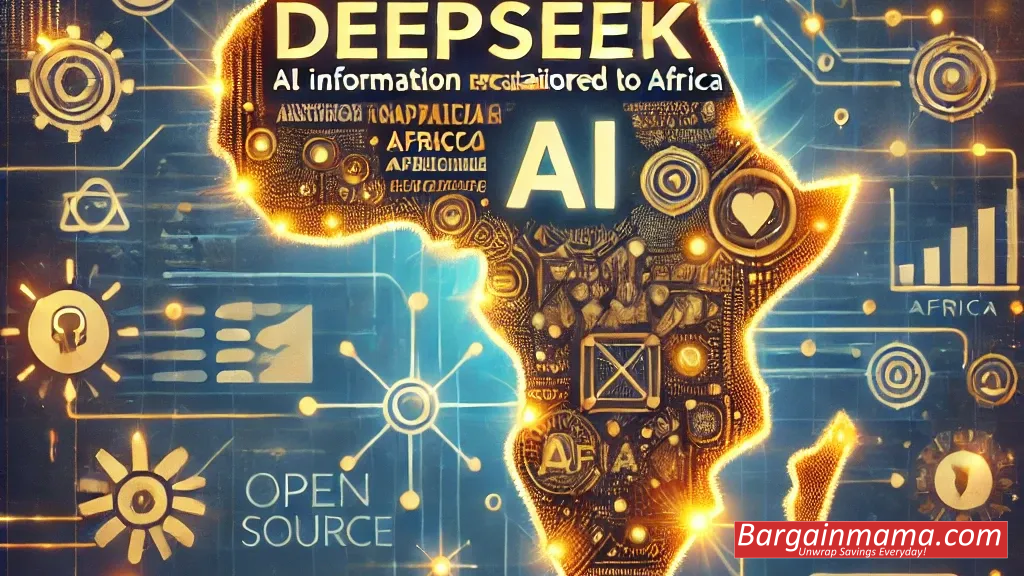As Africa accelerates its digital transformation, China is playing a pivotal role in shaping the continent’s artificial intelligence (AI) future. With Chinese start-up DeepSeek at the forefront, African nations are leveraging AI to leapfrog traditional development milestones. However, experts warn that challenges such as infrastructure gaps, data limitations, and governance frameworks must be addressed to fully realize AI’s potential.
China’s Digital Silk Road Fuels Africa’s AI Growth
China’s involvement in Africa’s AI revolution is deeply rooted in its Digital Silk Road initiative, launched in 2015. Through this program, Chinese enterprises have been building critical digital infrastructure, including submarine cables, 5G networks, and data centers. According to Yu Jia, senior operations officer at Peking University’s Institute of New Structural Economics, these efforts have laid the hardware foundation necessary for AI adoption across the continent.
Africa is China’s second-largest overseas engineering market, with Chinese companies signing contracts worth over $700 billion in the past decade. As of August 2024, 52 African countries and the African Union have partnered with China under the Belt and Road Initiative (BRI). These collaborations are not only strengthening Africa’s digital infrastructure but also fostering AI innovation in key sectors like agriculture, healthcare, education, and finance.

AI’s Transformative Potential in Africa
Despite accounting for just 2.5% of the global AI market, Africa stands to gain significantly from AI adoption. A report by the Global System for Mobile Communications estimates that AI could contribute $2.9 trillion to the continent’s economy by 2030, boosting annual GDP growth by 3%.
South Africa, Kenya, Egypt, and Nigeria are leading the charge, hosting over 2,400 AI-focused companies as of 2024. South Africa, in particular, has emerged as a regional leader, establishing a national AI institute to support applications in mining, agriculture, and government data systems.
Kenddrick Chan, head of the digital international relations project at LSE IDEAS, highlights Africa’s potential to bypass outdated technologies and adopt AI-driven solutions. “Africa might be able to implement AI faster as it does not have entrenched legacy systems,” he said. For instance, mobile banking has already replaced traditional banking in many parts of the continent, demonstrating Africa’s ability to leapfrog technological barriers.
Challenges on the Road to AI Adoption
While the opportunities are immense, Africa faces significant hurdles in its AI journey. Unstable power supplies, limited computing capacity, and a lack of advanced computing centers are major obstacles. Yu Jia notes that Africa’s reliance on external technologies, particularly in core areas like chip development and algorithm innovation, further complicates its AI ambitions.
Data availability is another critical issue. Iginio Gagliardone, a professor at the University of the Witwatersrand, points out that Africa’s linguistic diversity and limited online data traces hinder AI model training. “We’re talking about a continent with 54 countries and hundreds of languages, many of which leave little digital footprint,” he explained.
DeepSeek: A Catalyst for China-Africa Collaboration
The emergence of DeepSeek, a Chinese AI start-up, has opened new avenues for China-Africa cooperation. By providing open-source AI solutions, DeepSeek is helping African nations address challenges in agriculture, healthcare, and climate monitoring.
Yu Jia emphasizes the potential for AI to revolutionize precision agriculture and public health management. “AI-assisted diagnostic tools and disease surveillance systems can help bridge critical resource gaps in healthcare,” she said. Similarly, AI-driven climate monitoring and pest prediction tools can enhance agricultural productivity, a key sector for many African economies.
However, the open-source nature of DeepSeek’s technology also raises concerns about data privacy and AI safety. Chan warns that without proper governance, open-source AI could be misused for generating misinformation. “African governments need robust policies to ensure AI auditing and oversight,” he said.
Building AI Governance Frameworks
As AI adoption accelerates, African policymakers are increasingly focused on creating governance frameworks to regulate its use. Kenya, for example, is preparing to impose restrictions on the use of citizen data for training AI models by foreign entities. Similarly, Morocco is drafting legislation to ensure the ethical and safe use of AI applications.
China has also pledged to support AI governance in Africa. At the 2023 China-Africa Internet Forum, China’s top cyberspace regulator committed to deepening collaboration on AI governance, emphasizing ethical and responsible AI development.
Africa’s Strategic Position in the US-China AI Race
Amid escalating AI competition between China and the United States, Africa’s strategic partnerships are coming into focus. Iginio Gagliardone notes that African countries may lean slightly more toward China due to its consistent engagement and non-interference approach. “China has shown greater consistency over time, with less inclination to lecture others compared to the United States,” he said.
This sentiment is reflected in Africa’s response to the US-led Huawei ban during Donald Trump’s presidency. While countries like the UK and Australia complied with the ban, African nations, including US ally Kenya, maintained their partnerships with Huawei without facing repercussions.
Bitange Ndemo, Kenya’s ambassador to Belgium and the European Union, highlights the current US administration’s inward-looking policies as a factor in Africa’s growing ties with China. “The US is becoming insular, prioritizing its ‘America first’ agenda. Africa cannot be the battleground for superpower rivalry,” he said.
The Road Ahead
Africa’s AI revolution is still in its early stages, but the continent’s potential is undeniable. With China’s support through initiatives like the Digital Silk Road and partnerships with companies like DeepSeek, Africa is well-positioned to harness AI for sustainable development.
However, realizing this potential will require addressing infrastructure gaps, building robust governance frameworks, and fostering local talent. As Africa navigates these challenges, its ability to leverage AI for economic growth and social development will depend on the collective efforts of governments, private enterprises, and international partners.
In the coming years, Africa’s AI journey will serve as a test case for how emerging economies can harness cutting-edge technologies to leapfrog traditional development barriers. With the right policies and partnerships, the continent could emerge as a global leader in AI innovation, transforming not only its own future but also shaping the global AI landscape.



